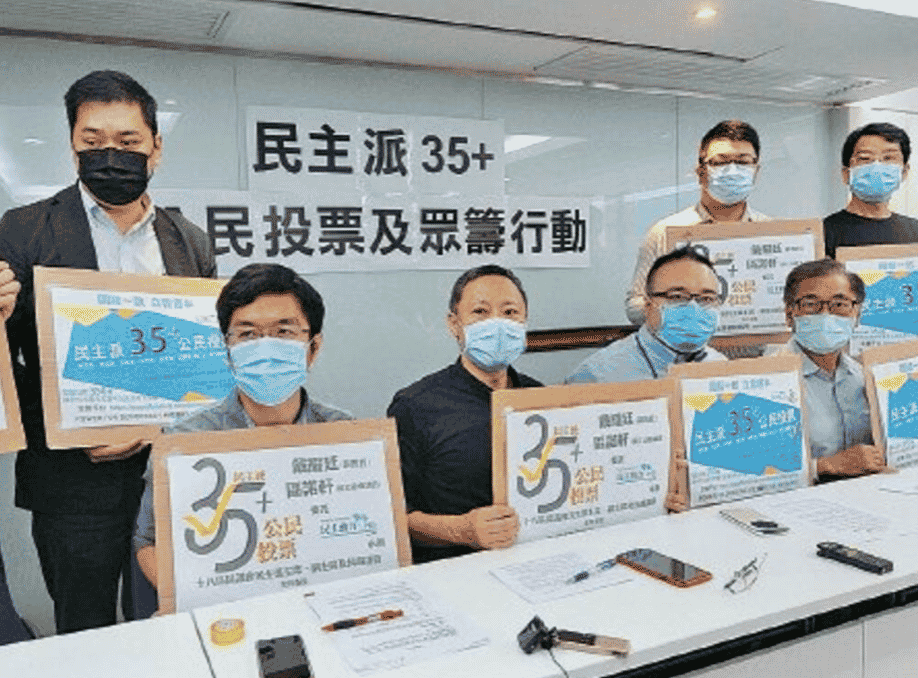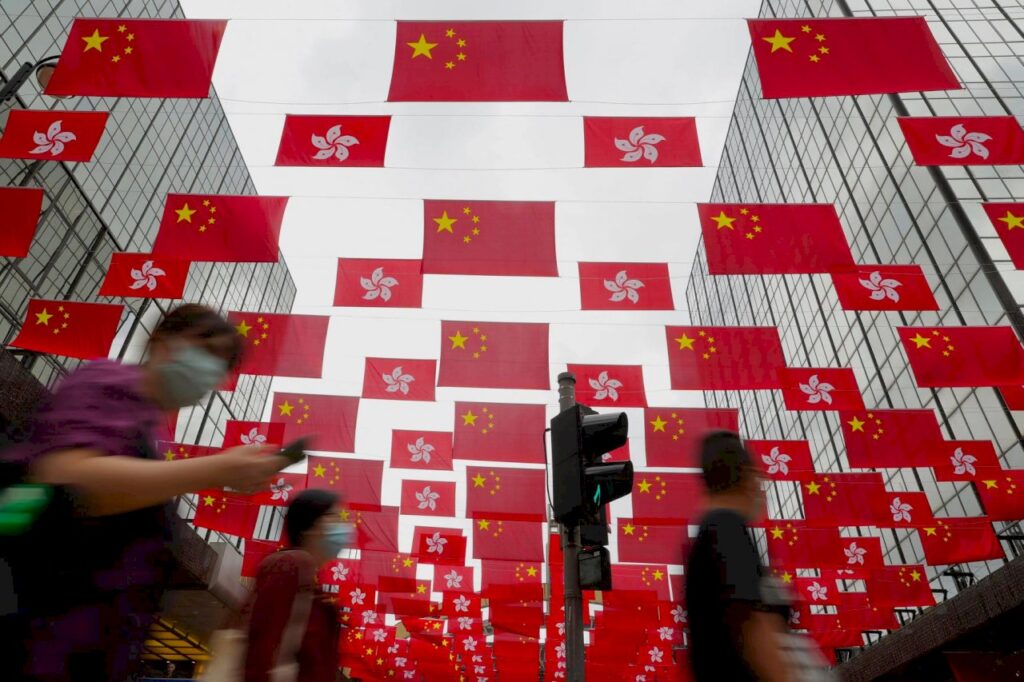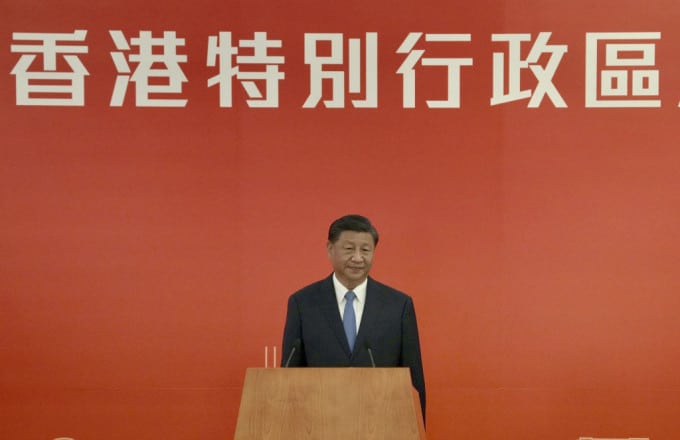With the slogan 35+, the democrats are targeting more than half of the seats in the Legislative Council. The primary election will be held this weekend. Just after the primary election forum, the leader, Benny Benny, pointed out that there is a voting threshold in New Territories West, which is 10% of the pan-democratic votes, and also suggested that other constituencies set the same threshold. He must be honest because he is not very confident about meeting the standards, because based on this standard, only half of the constituencies passed the primary election in 2018, and the threshold is not low. Electoral coordination is the last platform for the democrats. If the results of the primary elections fail to satisfy the interests of the factions, the short-term strategic cooperative relationship between the pan-democrats and the local factions will break down at any time.
The confrontation between peace and courage foreshadows the reorganization of political parties
The vote share of the pan-democratic camp and the establishment camp maintained the golden ratio of 60% and 40% respectively. The primary election of the Democratic Party aimed to allocate 60% of the votes to itself. The compromising faction and the resisting faction are competing on the same stage, and the drama of a brave showdown is bound to take place. The former emphasizes parliamentary ability and will fulfill his duties as a legislator; the latter upholds the will to fight and continues street fights to block the bill. When traditional political parties talk about their great victories in the District Councils, they often call the Democratic Party, which holds nearly 100 seats, the largest party. However, they cannot ignore the independent amateurs with more than 200 seats, who also have the strength to become local pillars. The emerging political groups have threatened to replace the old pan-democratic camp with the 18+ camp, leading in online support and setting the stage for a realignment of political parties. It's just that the primary election qualifying rights and opinion poll scores favor the well-known pan-democratic camp, and the key reorganization of the democratic camp may not happen in this term.
Candidates who have the blessing of the Democratic Party still need to pass the review of the Returning Officer. The general principle is of course to faithfully and sincerely uphold the Basic Law. However, since the introduction of the confirmation letter, the Returning Officer has made a number of decisions and the DQ threshold has become clearer. The disqualification of Leung Tin-kei and Chan Ho-tin, who advocate Hong Kong independence, was expected. As for the invalidation of the nominations of Lau Siu-lai and Agnes Chow, it reflects that the candidates cannot be vague about their stance on Hong Kong independence. Even if they express opposition to Hong Kong independence, they cannot condone it. Become an option for Hong Kong's future. Yao Songyan, who lost his seat in the oath-taking controversy, regained his eligibility to run for election after explaining his political stance. Representatives criticized the NPC for its interpretation of the law, saying that there was still room for discretion, but the binding force of the NPC's decision must be accepted. Similarly, it can be expected that candidates who have criticized the Hong Kong National Security Law will be asked by the Returning Officer to acknowledge that they accept the law.
Protest politics changes government behavior
Vetoing the Budget is the common agenda of the 35+ democrats, which will then trigger the Chief Executive to dissolve the Legislative Council and create a constitutional crisis. Although the chances of 35+ winning are not optimistic, if the democrats become the majority, they can include the chairman of the Legislative Council and the chairmen of various committees, approve more private bills and amendments, and filibuster to delay funding. The non-cooperation movement is the privilege of the minority. The establishment is no longer under pressure to give votes to the government. They can bargain as much as they want in the meeting hall and even adjourn the meeting if necessary. In response to the changed political situation, the government's behavior will also change, such as injecting new resources into education, medical care and social welfare in the budget to win support. Judging from past performance, the functional groups bear the interests of the industry and may not be able to unite with 35+. Furthermore, even if the legislative function is completely paralyzed and all legal systems remain the same, although they cannot keep up with the pace of society, it is not the point where the sky is falling.
The deterrent effect of the National Security Law has made the democrats wary and their radical behavior has been restrained, but political polarization remains serious and the will to fight is growing. The compromising faction has become more aggressive in order to please the voters, while the protesting faction has entered the system without forgetting to impact it. Democratic theory believes in the virtuous interaction between institutional politics and contentious politics. Now that physical conflicts are eroding rational political discussion, how far can Hong Kong's democratic movement go while trying to balance one thing with another?
Ray Poon
Co-Convenor (Research), Path of Democracy



